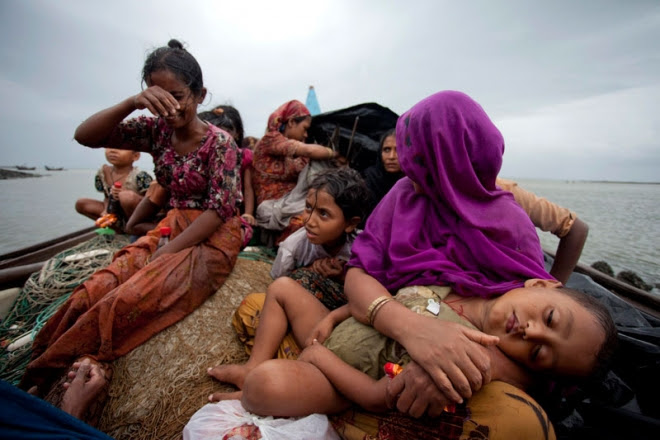The UN refugee agency identified Myanmar as the nation containing the largest number of stateless people when it launched a campaign to eradicate statelessness within a decade on 4th November.

UN refugee chief Antonio Guterres told reporters in Geneva that Myanmar denies citizenship to some one million Rohingya Muslims.
Myanmar considers the Rohingya illegal migrants from Bangladesh, which in turn considers the ones who cross the border illegal migrants from Myanmar.
The UNHCR identified the Rohingya as making up 10 percent of the world’s stateless people, as they calculate 10 million people worldwide have no nationality, leaving them in a devastating legal limbo.
"Every 10 minutes a new stateless person is born," said Guterres, describing the situation as "absolutely unacceptable" and "an anomaly in the 21st century. "
With its "I Belong" campaign, UNHCR aims to highlight the "devastating life-long consequences of statelessness" and push countries to rectify their laws to ensure no person is denied a nationality.
"Often they are excluded from cradle to grave, being denied a legal identity when they are born, access to education, health care, marriage and job opportunities during their lifetime and even the dignity of an official burial and a death certificate when they die," the agency said in its report.
"Statelessness makes people feel like their very existence is a crime," Guterres said.
In an open letter, Guterres, UNHCR special envoy and Hollywood star Angelina Jolie, UN rights chief Zeid Ra'ad Al Hussein, Nobel Peace Prize laureates Shirin Ebadi and Desmond Tutu and others described what living without a nationality can mean.
"Statelessness can mean a life without education, without medical care or legal employment," the letter said, adding: "Statelessness is inhuman. We believe it is time to end this injustice."
The campaign aims to gather 10 million signatures with the petition in its bid to eradicated statelessness within the next 10 years.
The good news, UNHCR said, was that much progress had already been made towards resolving the issue, with more than four million stateless people gaining a nationality in the past decade due to legislative and policy changes.
A court ruling in Bangladesh in 2008 had for instance allowed 300,000 stateless Urdu-speakers to become citizens.
"Unlike many armed conflicts, it is wholly within the power of every concerned government to resolve statelessness," Guterres said.



